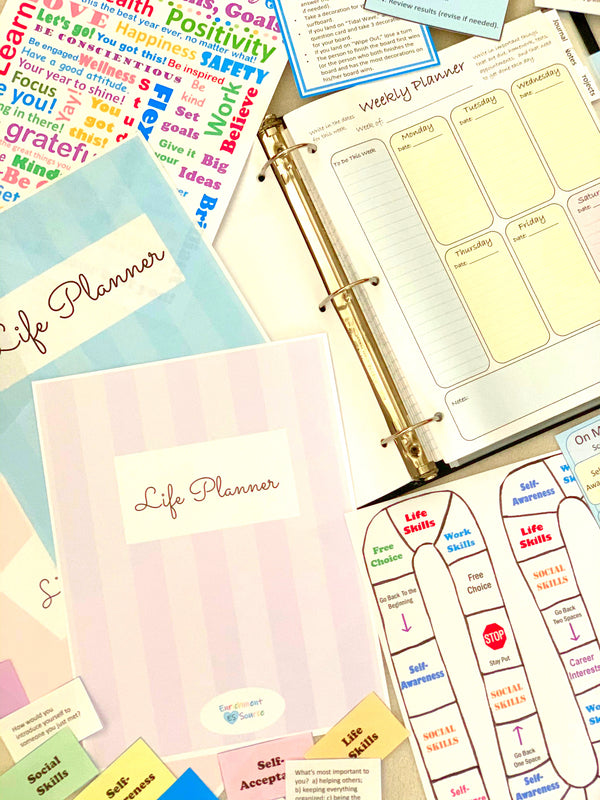August 26, 2020
Manners are Important
Having good manners is an important social skill for everyone to master. In order to get along in our world, we need to abide by certain guidelines and treat others with respect and kindness. Saying “please,” “thank-you,” “you’re welcome,” “excuse me,” and so on at the right time and in the right circumstances are just some of the many ways to demonstrate good manners. Many children may not know what good manners are or how to use them, and often they do not have enough opportunities to practice them.
Children with disabilities, including learning disabilities, ADHD, and those on the Autism Spectrum, can especially benefit from manners (and other social skills) learning and practice.
What are Manners?
The definition of manners includes things like “the prevailing customs, ways of living, and habits of people,” “ways of behaving with reference to polite standards,” and “ways of behaving toward people, especially ways that are socially correct and show respect for their comfort and their feelings.”
What are "Good" Manners?
Good manners are a set of behaviors (and accompanying good intentions) that we use to treat others kindly. We also like others to use good manners with us. They are things like saying “please” when we ask for something, saying “thank you” when someone gives us something, saying “excuse me” when we slipped up a bit (such as accidentally bumping someone or burping), saying “I’m sorry” if we hurt someone’s feelings, and saying “hello” when we see someone.
Good manners also include the nice things we do, like offering to help someone carry something, holding the door open for someone, not interrupting someone, listening to someone who is talking, waiting our turn, and chewing our food with our mouths closed.
Good manners go beyond saying “please” and “thank you.” They involve treating others appropriately, as we would expect others to treat us, and showing respect, gratitude and kindness.
Good manners are all those other things we say and do that express respect, courtesy, kindness, and common decency, such as listening to others when they speak, giving others a turn (not butting in), playing fair (not cheating), accepting and helping others (holding the door open rather than letting it slam in someone’s face), and more.
Reasons Behind Good Manners
In addition to teaching kids to use good manners in various situations, it’s important to teach them the reasons we use manners. We need to help them to understand that we don’t just say “please” and “thank you” because it sounds good. They need to see the bigger picture and what these words and phrases mean.
Some of the underlying reasons for using good manners include:
Most of the manners we use express one or more of these reasons. For example, using words like “please,” “excuse me,” and “you’re welcome” express respect. Holding the door open for someone or offering to carrying something for someone show helpfulness. Saying “I’m sorry” when you’ve hurt someone’s feelings shows kindness. Saying “hi” and smiling at someone conveys friendliness. Inviting someone to join your group shows kindness and consideration. Saying “thank you” expresses gratitude.
Having good manners is an important social skill that is conducive to success. Studies have shown that children with good manners do better in school, are more successful in life, have more friends.
Why Manners Are So Important
In order to be successful, you have to have good manners.
Other Words Associated With Manners
Etiquette – a subset of manners that has to do with the rules of socially acceptable behavior (while manners includes the meanings or values behind good behavior)
Politeness – another word used to describe manners; the way someone acts
Gooden Rule – you may have heard this term, which has to do with the idea that we treat others as we want to be treated
Common Sense – good sense and sound judgement in practical matters that does not need to be taught; while manners and certain behaviors associated with manners may need to be taught and practiced, the reasons behind using good manners (such as being kind and respectful) usually do not and would be considered “common sense.”
Empathy – putting yourself in someone else’s shoes; trying to see things from their perspective
Assertiveness – speaking up for yourself, being honest, direct and clear; speaking one’s mind while still being respectful of others at the same time
Important Note! When Not to Use Good Manners
There are times when manners are not appropriate or safe. These include times when a stranger approaches or when someone is in danger. At these times, some other action is required and manners are not a priority.
Times when good manners are not necessary:
Using good manners does NOT mean:
Using good manners does not mean being a pushover, or letting others take advantage of you. You can still be assertive and use good manners. It’s reasonable to expect other people to also use good manners.
Enrichment Source offers valuable resources for helping children learning about and practice good manners. Visit our Manners Lessons collection!

Join Our Mailing List
Be the first to learn about specials and other new! Join our email list!
